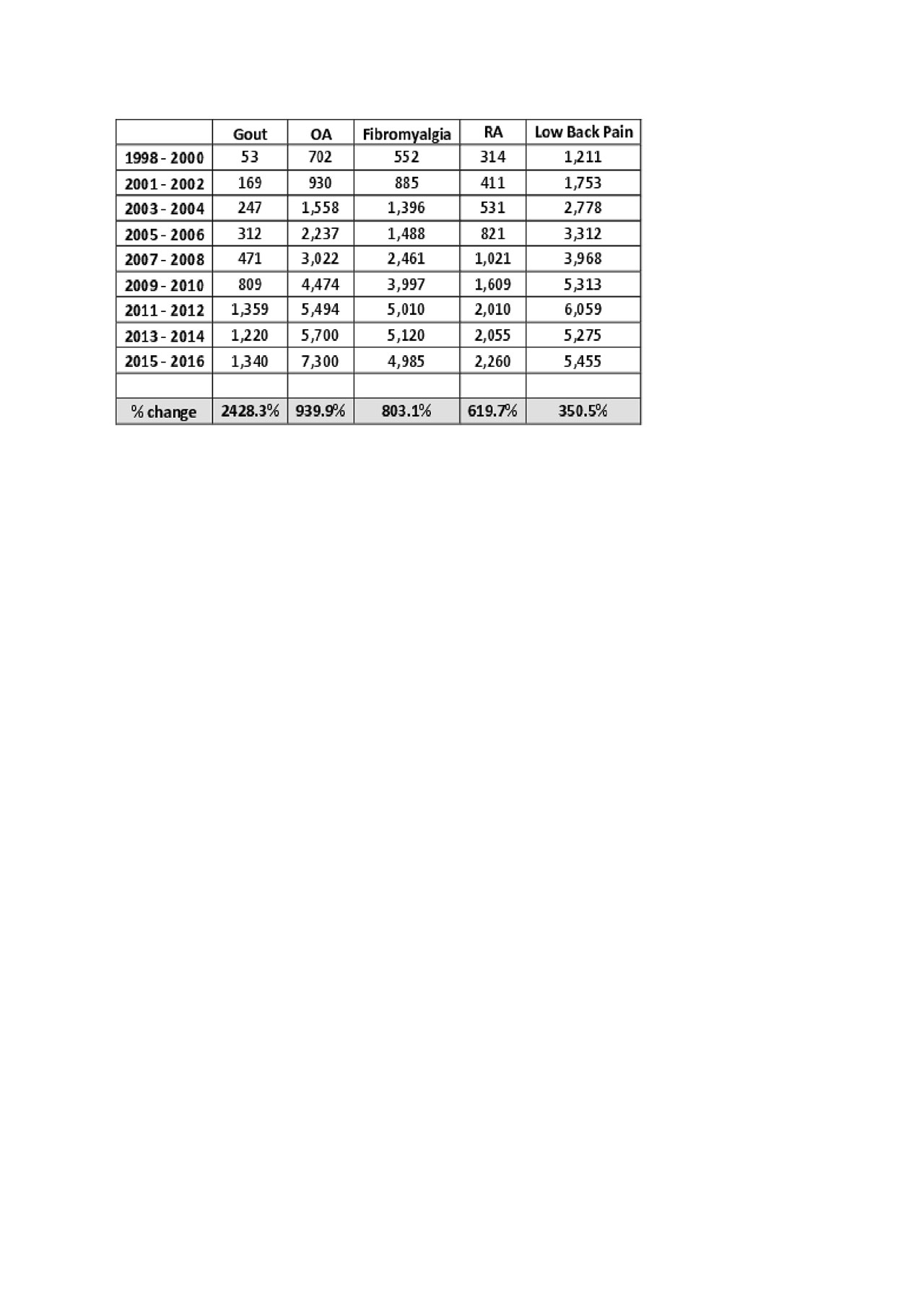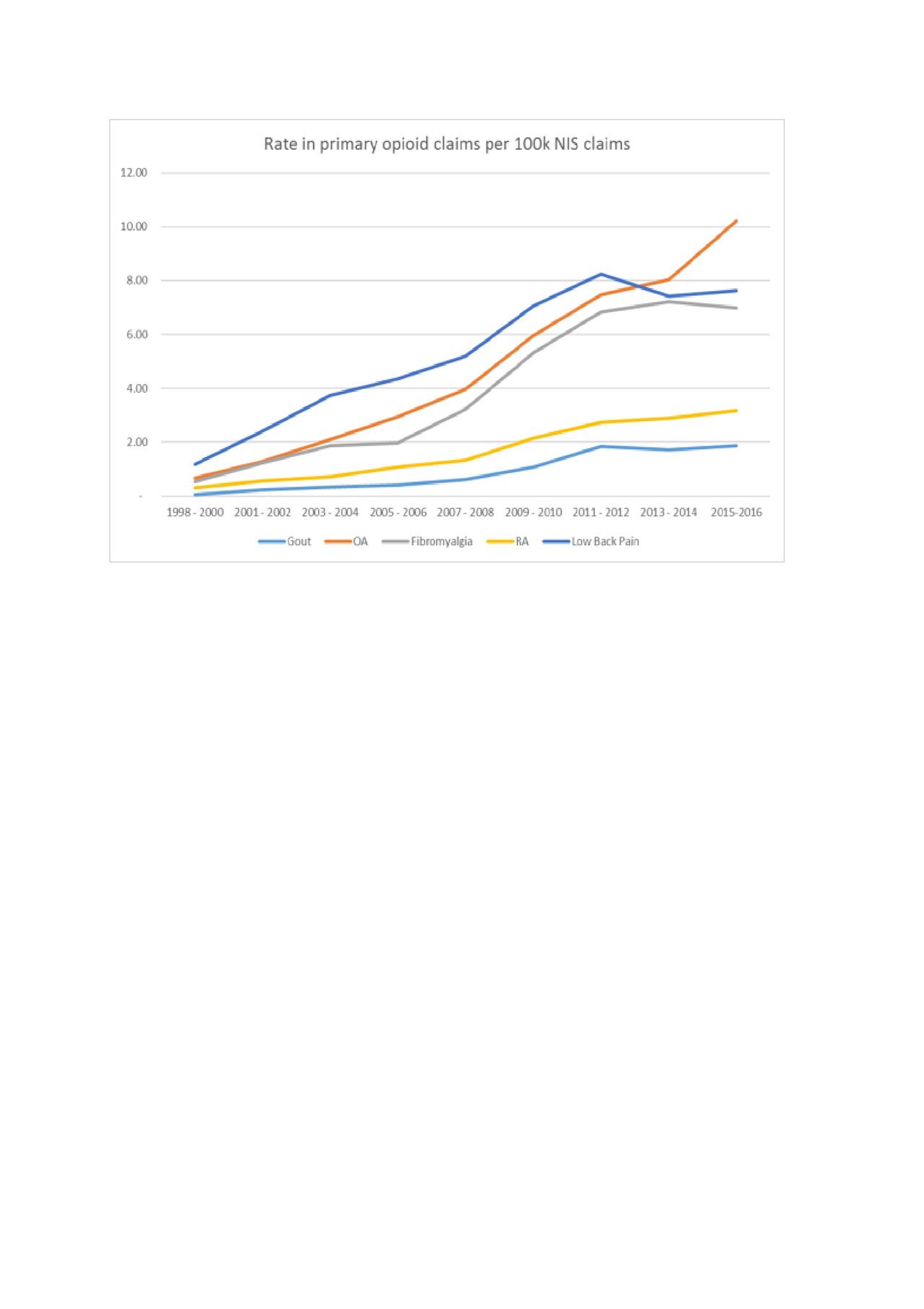Session Information
Date: Tuesday, November 12, 2019
Title: Epidemiology & Public Health Poster III: OA, Gout, & Other Diseases
Session Type: Poster Session (Tuesday)
Session Time: 9:00AM-11:00AM
Background/Purpose: Rates of opioid abuse and associated mortality is a problem of epidemic proportion in the U.S. To our knowledge, limited data are available on opioid use disorder (OUD)-related hospitalizations in people with common musculoskeletal diseases
Methods: We used the U.S. National Inpatient Sample (NIS) data from 1998-2014 to examine the rates of OUD hospitalizations without opioid overdose, detoxification or rehabilitation services, based on the presence of any of the following International Classification of Diseases, Ninth Revision, Clinical Modification (ICD-9-CM) diagnostic codes for opioid dependence or abuse in the primary diagnosis position: 304.0x, 304.7x, 305.5x, 965.0x, E850.0, or E935.05. Five key rheumatic diseases were assessed using the respective ICD-9-CM diagnostic codes in a secondary position: Gout, rheumatoid arthritis (RA), fibromyalgia, osteoarthritis (OA), and low back pain (LBP). Incidence of OUD claims was assessed per 100K NIS claims overall.
Results: The incidence of OUD-related primary hospitalizations was low in 1998-2000 for the five musculoskeletal conditions and increased over the 19-year study period (Table1). The increase was 3.5- fold higher in people with LBP to 24-fold higher in people with gout. Rates of OUD per 100K total NIS claims showed similar trends namely, with increased ranging 5-fold higher in people with LBP to 35-fold higher in people with gout (Table 2). There was a plateauing of OUD claims for LBP and gout, but the increase seems to continue for OA, fibromyalgia, and RA (Figure 1).
Conclusion: The rate of increase in OUD-hospitalizations occurred in all 5 musculoskeletal conditions, but the rate differed by the condition. Providers, policy makers and patients with these conditions need to be aware of these trends, so the OUD-associated morbidity and mortality can be prevented.
To cite this abstract in AMA style:
Singh J, Cleveland J. Time-trends in Opioid Use Hospitalizations in Common Musculoskeletal Conditions: Gout, Osteoarthritis, Rheumatoid Arthritis, Fibromyalgia, and Low Back Pain [abstract]. Arthritis Rheumatol. 2019; 71 (suppl 10). https://acrabstracts.org/abstract/time-trends-in-opioid-use-hospitalizations-in-common-musculoskeletal-conditions-gout-osteoarthritis-rheumatoid-arthritis-fibromyalgia-and-low-back-pain/. Accessed .« Back to 2019 ACR/ARP Annual Meeting
ACR Meeting Abstracts - https://acrabstracts.org/abstract/time-trends-in-opioid-use-hospitalizations-in-common-musculoskeletal-conditions-gout-osteoarthritis-rheumatoid-arthritis-fibromyalgia-and-low-back-pain/



